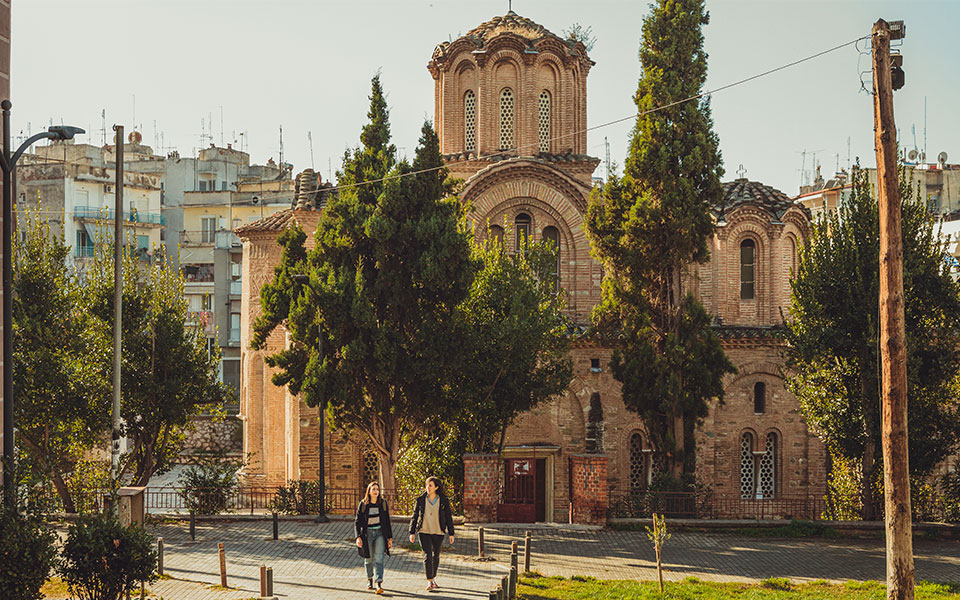Over the last decade, Thessalonians᾽ search for a new hangout has shifted north of Egnatia Street, to the area around the Old Town Hall. Following the pandemic, there has been increased activity a bit further west, in the area surrounding the Church of the Holy Apostles. Mavili Square, the small square at the intersection of Gladstonos and Palama at the northwestern edge of the city center, was the site of the city᾽s western gate during Ottoman times. At the beginning of the 19th century, it was a center of commercial activity, although it also attracted some unsavory types. In the 20th century, the area was dotted with brothels until a “clean-up” policy was adopted in the early sixties. Traces of that shady past lived on in the remaining adult movie theaters, the abandoned shops that lined badly-lit streets, and a general sense of decadence. Lately, however, this part of town has been redefining itself.
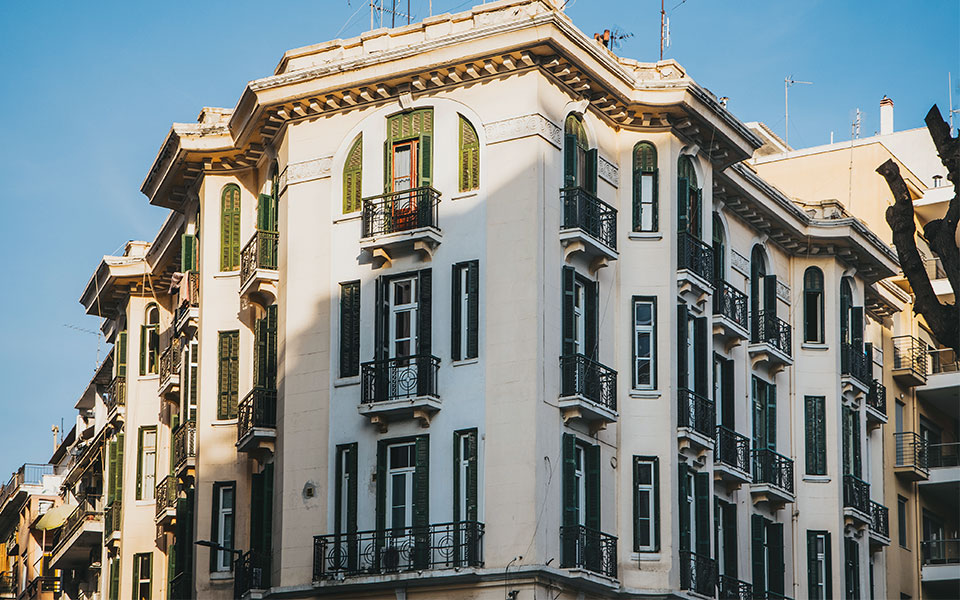
© Olga Deikou
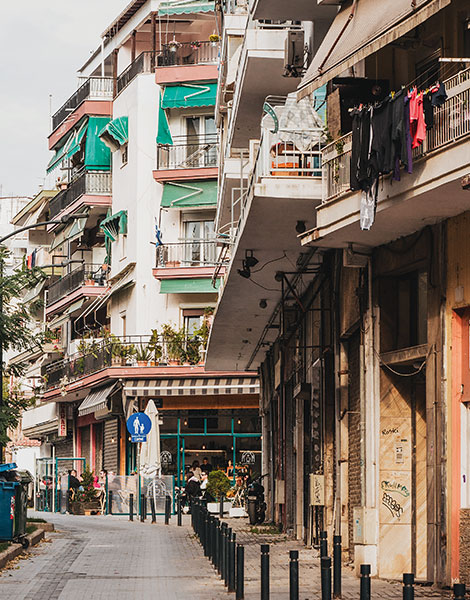
© Olga Deikou
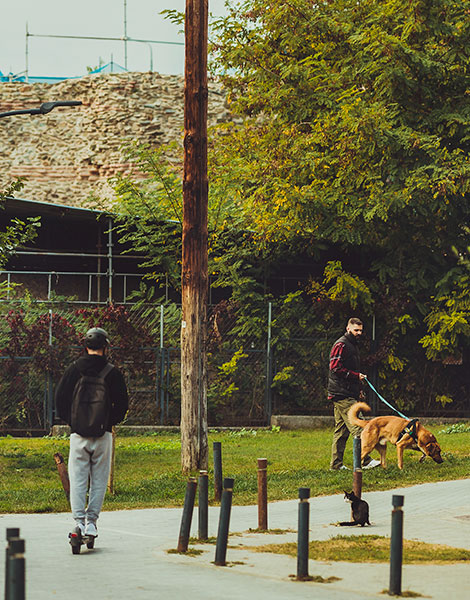
© Olga Deikou
In 2017, just as much-needed work around the area᾽s two most important Byzantine sites, the Church of the Holy Apostles and the Pasha Hamam baths, was being completed, municipality authorities took on the reconstruction of Mavili Square using bioclimatic design elements. These projects changed the face of the neighborhood, which now boasts friendlier roads and more greenery and places with outdoor seating, making it a haven in the midst of a dense urban area. Here, the Church of the Holy Apostles – a UNESCO World Heritage Site – shines brighter than ever, thanks to its own recent renovation. This city landmark is a true architectural marvel, featuring impressive mosaics and frescoes that survived damage suffered at the hands of the Ottomans. Today, it is the most important example of religious art from the Paleologian era (1261 – 1453).
One of the area᾽s other landmarks is the former A. Konstantinidis tobacco warehouse on Mavili Square. This listed building, out of which one of the most important companies in the city operated until the 1960s, was relaunched after renovation by its newest generation of owners as a boutique hotel. “Mavili Urban Stay” (themavili.gr) features 42 rooms and common areas that preserve elements of its impressive architecture. There are other structures in the area that have undergone similar transformations, including those of the Thess Residences and the Polis Luxury Apartments.
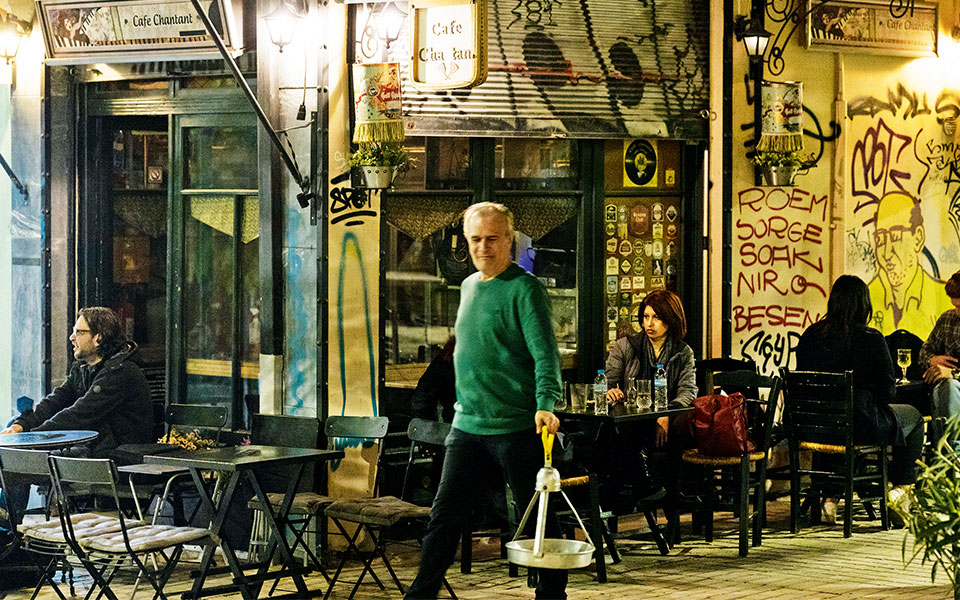
© Olga Deikou
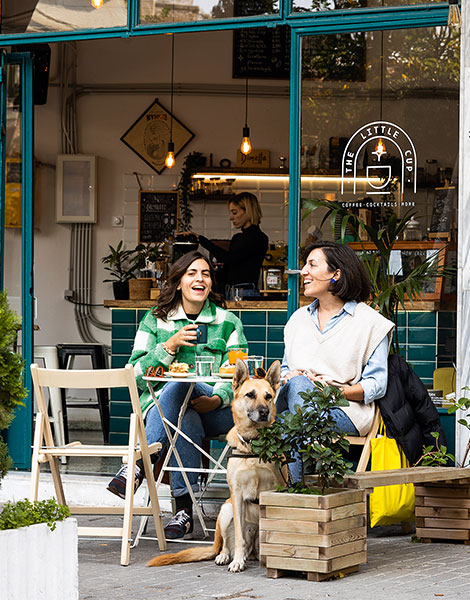
© Olga Deikou
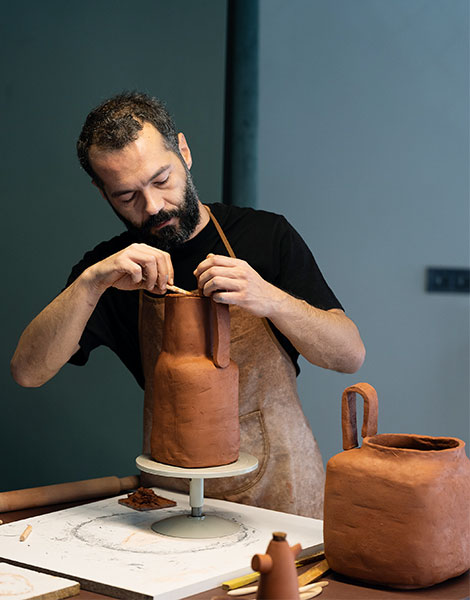
© Olga Deikou
New residents and old memories
In the 1950s and 1960s, when the area was bursting with life, all the apartment buildings hosted shops and commercial workspaces on their ground floors.
Stefanos Delidis, who grew up in Mavili Square, worked for years at the flower shops on Frangon Street before deciding to open his own on Paparigopoulou Street. He experienced the peak period of the area in the late 1980s and its decline a decade later; today, he᾽s happy to see a creative new crowd moving into spaces left empty for years.
One of these creative newcomers is Simos Antoniadis, an architect who discovered a passion for ceramic art that he᾽s expressing in his new venture ULURU. “For now, it᾽s a ceramic arts workshop, but in the future, I᾽d like it to host other forms of creativity.” Due to open soon, ULURU is housed in an abandoned corner shop that Simos came across while strolling around the area. He rented it immediately and, with the help of his friends, spent a summer transforming the space, which features a bright green ceiling, many plants, and his ceramic creations, as well as the old sign that had hung there previously.
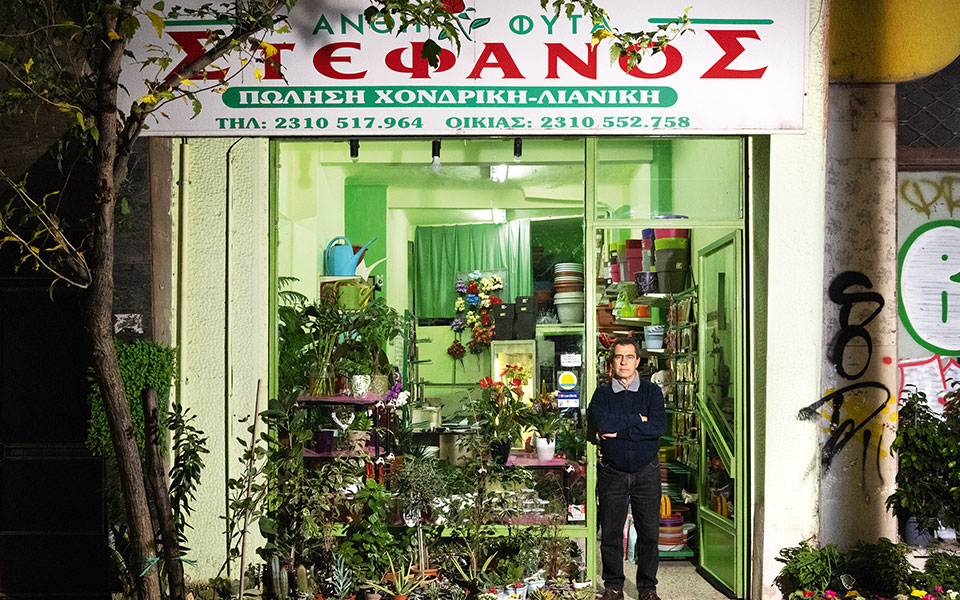
© Olga Deikou
“I knew what I wanted when I moved here,” says Mike Rafail, a photographer and graphic designer creates posters and other visuals for some of Thessaloniki’s most significant cultural events. “I was looking for a space in a lively location but didn᾽t want the hustle and bustle of the city center.” His design studio, That Long Black Cloud, is on Piniou Street, right next to the Pasha Hamam baths. “It᾽s nice to see the neighborhood changing. When I arrived, most shops were empty, but now new ones are opening, and many people are rediscovering this part of the city.”
“We want more people!” says Anastasia Akritidou, who has transformed a spacious former atelier on 17 Olympou into “Law To Impact,” a co-working space. “We wanted to challenge the stereotype that the bigger a lawyer᾽s office is and the closer it is to the courthouse, the more prestigious they are,” says Anastasia᾽s partner, lawyer Aikaterini Dodi. “Law TO Impact” is a versatile workspace that features open-plan offices and private meeting rooms and is suitable for hosting digital nomads and social entrepreneurs; it also offers legal consultation services to international clients. Its founders aspire for it to become a space for lawyers of all backgrounds and other professionals to operate together for the benefit of the neighborhood.
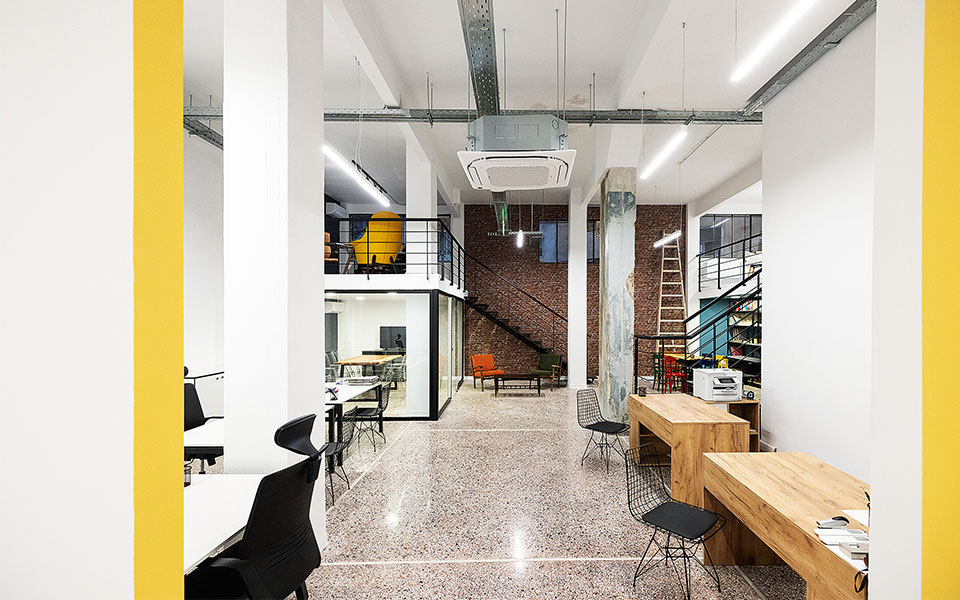
© Olga Deikou
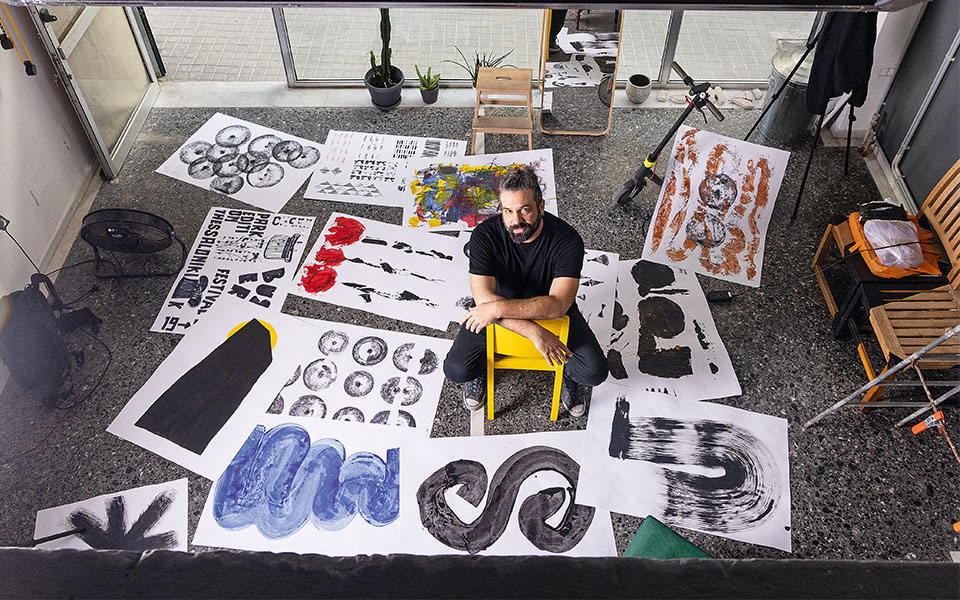
© Olga Deikou
FORMrelated, the architectural firm of Konstantinos Theodoridis and Eleni Papaevangelou, is located in an industrial semi-basement space on Gladstonos Street. Next to it stands the neoclassical building known as the Psoma Mansion, where Panos and Sonia, a young Greek couple who recently relocated from the Netherlands, have found the apartment of their dreams. “I love places with high ceilings and plenty of natural light that give you space to think and breathe. We found our own somewhat by chance. The notice read, ‘Apartment for sale in a landmark building,᾽ without photos or anything else, but we had a good feeling about it,” Sonia tells us. “The neighborhood has a mix of people. For instance, if a lady at the supermarket notices you holding something exotic (such as coconut milk or coriander), they᾽ll ask you what you᾽ll be making; the owners of the car parts shops are living encyclopedias, and the manager of Cine Vilma tells the most amusing stories as he sweeps the pavement. You are as close to – and as far as you need to be from – everything.”

